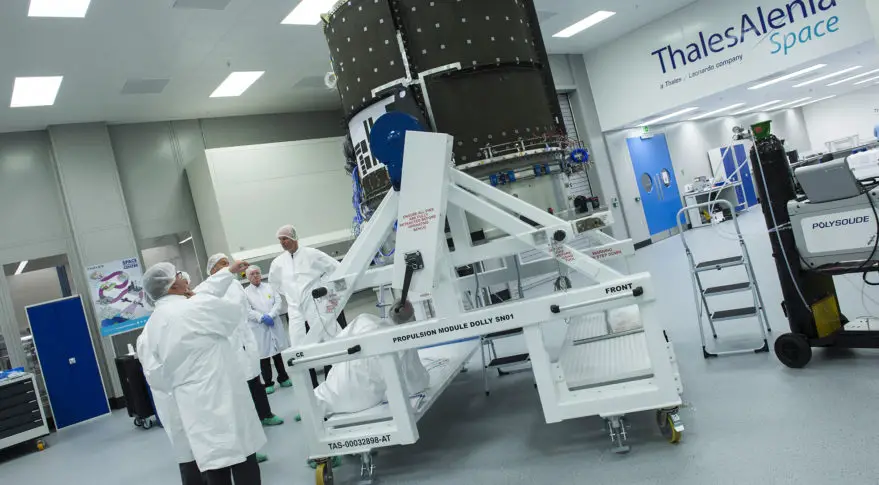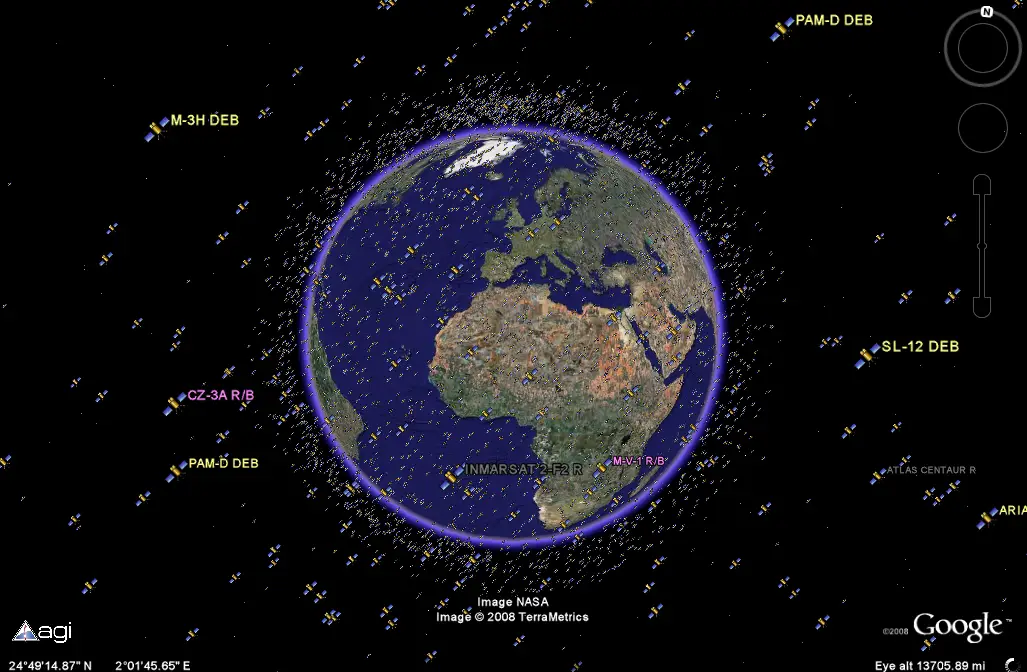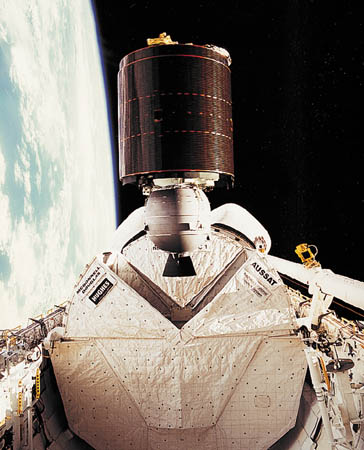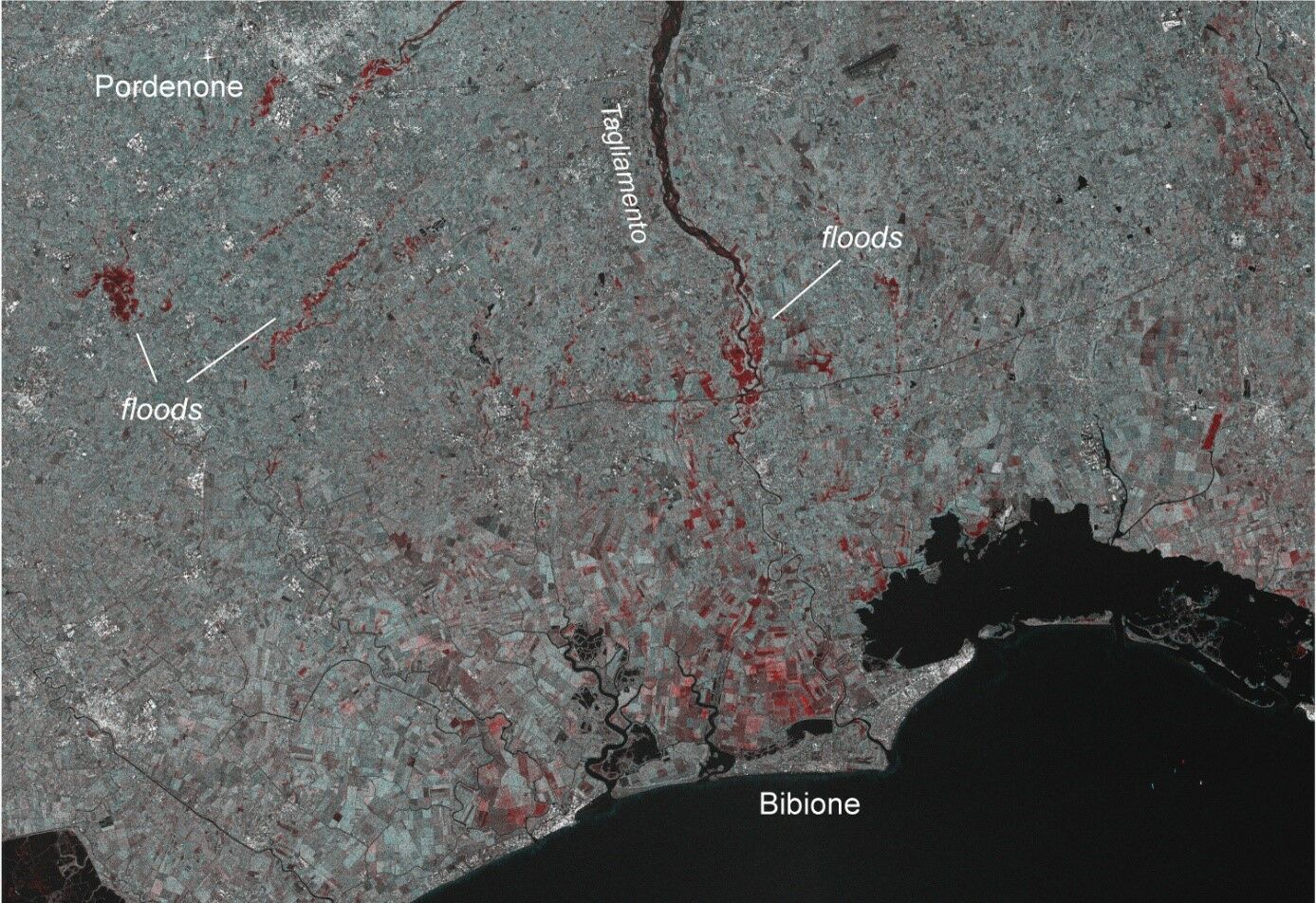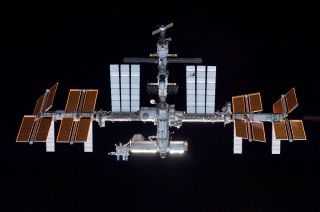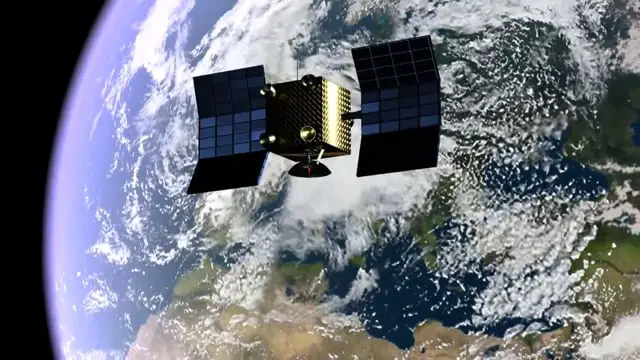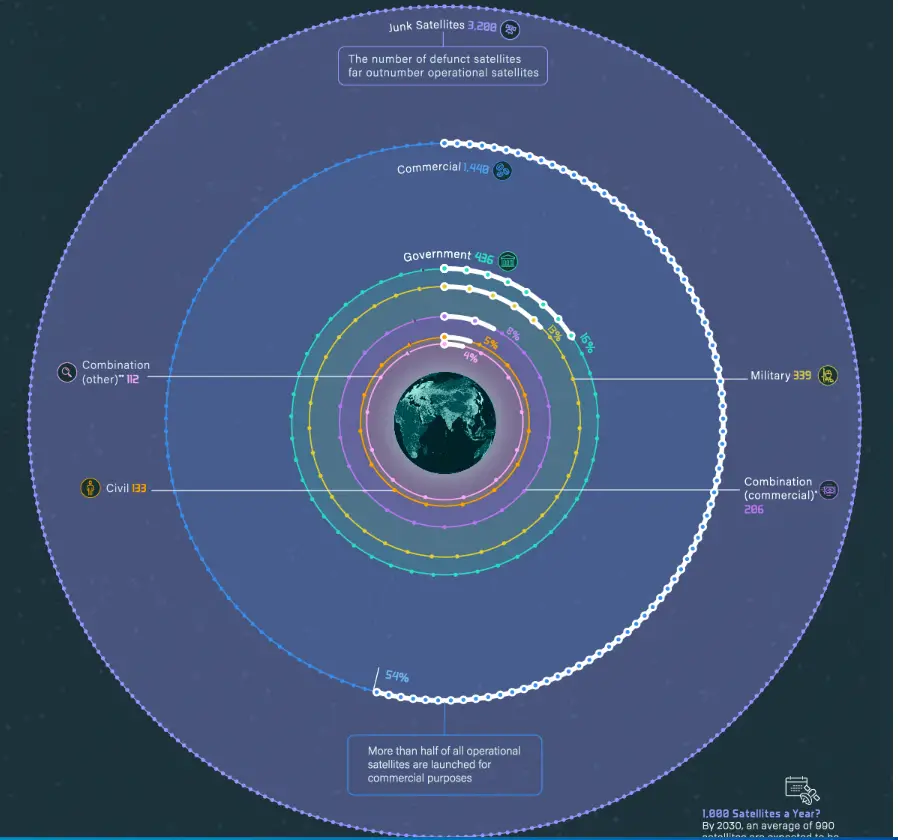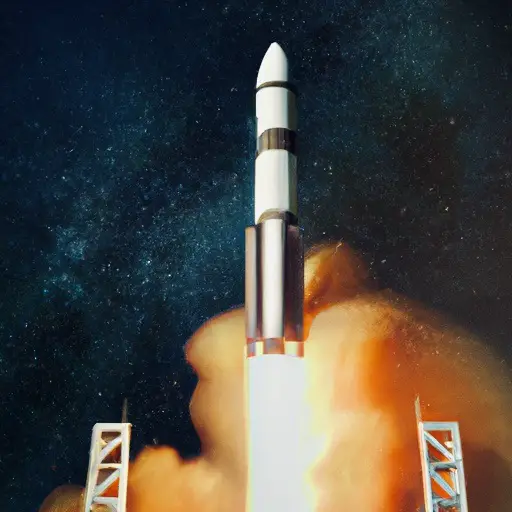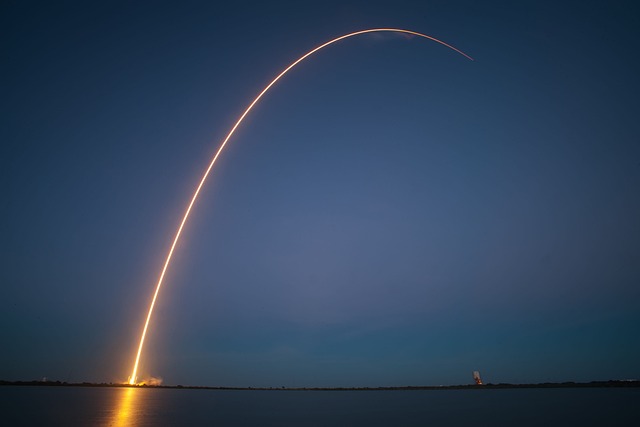
Satellite
Artificial satellites have revolutionized modern society in countless ways. According to data from the Union of Concerned Scientists, as of 2021, over 4,000 active satellites are orbiting the Earth. Most of these satellites are used for communication and navigation, providing vital services such as GPS, satellite television, and global internet connectivity.
Demand for satellites is increasing
Data also shows that the demand for satellite launches is increasing. This growth is due, in part, to the increasing demand for high-speed internet and the growth of the Internet of Things (IoT).
Another important use of satellites is for scientific and research purposes. Satellites with various sensors and instruments collect data on the Earth’s atmosphere, weather patterns, and climate changes. This data is used by meteorologists and climate scientists to improve weather forecasting and understand the impacts of human activities on the environment.
Additionally, satellites play a crucial role in disaster management and relief efforts. Satellites equipped with remote sensing technology can provide real-time data and images of disaster-stricken areas, allowing relief organizations to quickly assess the damage and respond accordingly. This technology has proven extremely valuable in natural disasters such as hurricanes, earthquakes, and floods.
Concerns of space debris
It’s worth noting that the increasing number of satellites in orbit also raises concerns about space debris. Data shows that there are tens of thousands of pieces of space debris larger than 10 cm in size, which pose a threat to operational satellites and manned spacecraft. Governments and space organizations are working to address this issue through international agreements and developing new technologies to track and remove space debris.
Final thoughts
In conclusion, artificial satellites have become an integral part of modern society, providing essential services and data for communication, navigation, scientific research, and disaster management. While the increasing number of satellites in orbit raises concerns about space debris, efforts are underway to address these challenges and ensure the sustainable use of outer space.
Artificial satellites have revolutionized modern society in countless ways. According to data from the Union of Concerned Scientists, as of 2021, over 4,000 ...
Satellite communication has become an integral part of our daily lives. From GPS navigation to satellite television, satellites have had a major impact on how ...
Manufacturers are generally optimistic that last year’s rebound in commercial geostationary satellite market orders marks the beginning of trend. After two ...
Small satellites, also known as smallsats or microsatellites, are spacecraft that weigh less than 500 kilograms. The development of small satellites has opened ...
Artificial satellites are human-built objects orbiting the Earth and other planets in the Solar System. This is different from the natural satellites, or ...
Advances in satellite technology have given rise to a healthy satellite services sector that provides various services to broadcasters, Internet service ...
Space-based technologies deliver reliable and repeat-coverage datasets, which combined with research and development of appropriate methods, provide a unique ...
Every usable artificial satellite whether it's a human or robotic one — has four main parts to it: a power system (which could be solar or nuclear, for ...
With satellites, we want them to stay in a particular orbit, and if they’re being shoved around in space by all these forces, what we need to do is apply other ...
10 Advantages of CubeSats vs. Conventional Satellites CubeSats are a class of nanosatellites that are approximately 10 cm x 10 cm x 10 cm in size and weigh ...
It may be no surprise that the United States, China, and Russia top the list of countries with operational satellites. The U.S. and Russia (then the USSR) ...



